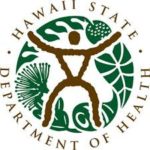
Hawaii State Department of Health has released information on how each county in the state is handling the COVID-19 crisis–with each one following a different path. Department Chair Bruce Anderson said “We can be more effective in mitigating the spread of COVID-19 if everyone takes these aggressive actions seriously. The response to the Governor and County directives has been positive so far and there are many, such as food establishments, which have identified alternative ways to serve the public with drive-through and take-out service to maintain their operations.”
- The City and County of Honolulu has mandated the closure of restaurants, parks and nightclubs for indoor service beginning 8:30 a.m. on Friday, March 20. Restaurant take-out, curb-side pick-up and delivery will be allowed.
- The County of Kaua‘i issued an islandwide nighttime curfew beginning Friday, March 20. The curfew will be in effect from 9 p.m. through 5 a.m. daily until further notice. Individuals must remain in their residence during these specified hours, with a few exceptions.
- The County of Maui announced rules that will be in effect beginning 7:45 a.m. on Friday, March 20, limiting the gathering of groups of people and curtailing vehicular transportation except for essential activities or operation of essential business or government functions. Restaurants and cafes that serve food within the premises are required to close; however, take-out and delivery service may continue.
- Hawai‘i County issued guidance that restaurants, bars and places of worship may make their own decisions to open or close, and consider ways to minimize risk to customers and employees.
Additionally, the State Health Department issued guidelines for who should be tested for COVID-19, recognizing that the State supply of test kits/materials is limited.
Who should be tested for COVID-19?
Most people who are sick do not need to be tested. There is no specific medicine to treat COVID-19, so whether you test positive or negative, management of your illness will be the same.
Individuals who are not sick should not be tested even if they have been exposed to COVID-19.
Individuals who are sick with respiratory illness (e.g., fever and cough or shortness of breath) AND who are at a higher risk for severe respiratory infections (e.g., older people, those with chronic medical conditions including immunosuppression) should call their usual source of healthcare to discuss whether they should be tested for COVID-19 and/or other infections such as influenza.
- A provider’s referral is required to receive testing.
- If you do not have a provider, call an urgent care center or community clinic in your area.
Anyone having difficulty breathing should seek medical care immediately. If possible, call your healthcare provider first so they are prepared to receive you.
Other people with mild illness should help protect our most vulnerable and conserve our precious supplies by practicing social distancing measures, monitoring their illness, and calling their healthcare provider if their symptoms worsen or persist.